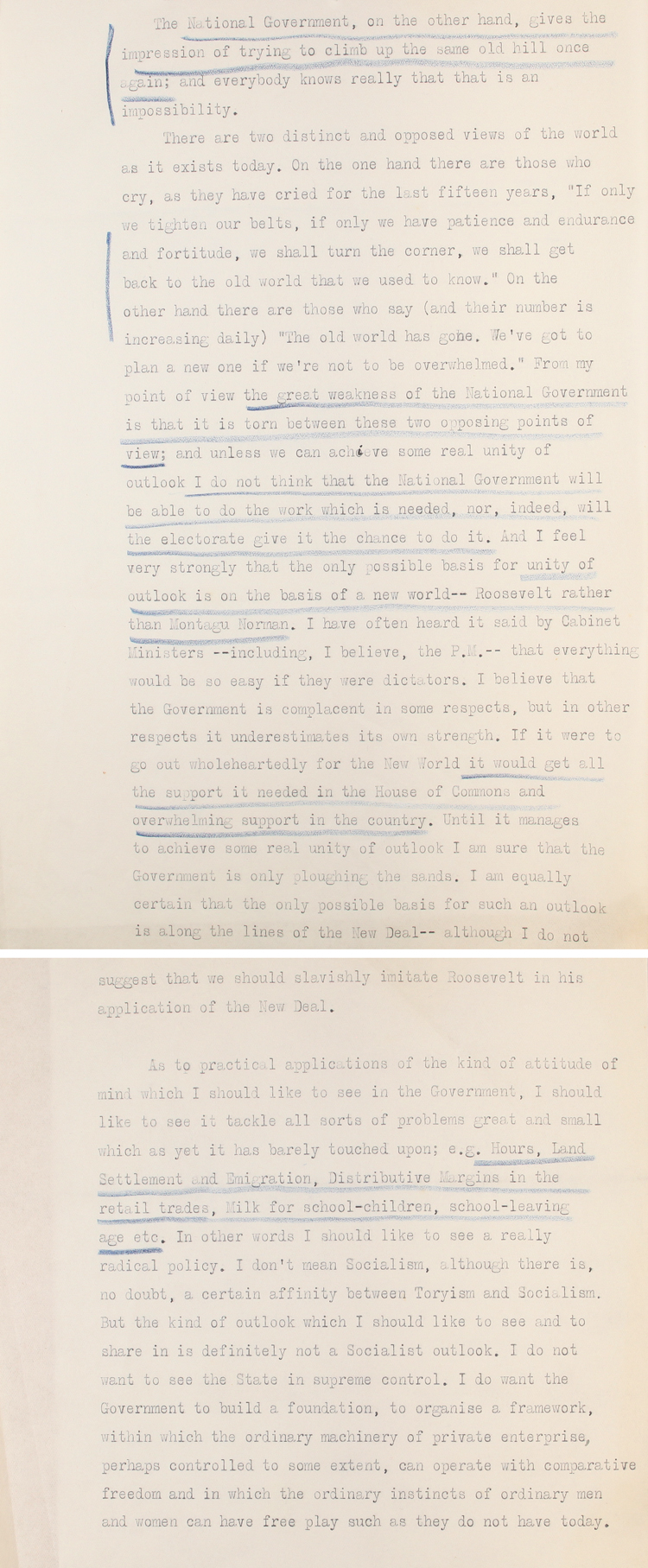
Extract from a statement from Ramsey MacDonald, c.1935 (PRO 30/69/1331)
In 1935 Stanley Baldwin replaced MacDonald as Prime Minister and increased the National Government majority in a General Election. MacDonald remained in the Cabinet.
Transcript
…
The National Government, on the other hand, gives the impression of trying to climb up the same old hill once again; and everybody knows really that that is an impossibility.
There are two distinct and opposed views of the world as it exists today. On the one hand there are those who cry, as they have cried for the last fifteen years, “If only we tighten our belts, if only we have patience and endurance and fortitude, we shall turn the corner, we shall get back to the old world that we used to know.” On the other hand there are those who say (and their number is increasing daily) “The old world has gone. We’ve got to plan a new one if we’re not to be overwhelmed.” From my point of view the great weakness of the National Government is that it is torn between these two opposing points of view; and unless we can achieve some real unity of outlook I do not think that the National Government will be able to do the work which is needed, nor, indeed, will the electorate give it the chance to do it. And I feel very strongly that the only possible basis for unity of outlook is on the basis of a new world – Roosevelt rather than Montagu Norman. I have often heard it said by Cabinet Ministers – including, I believe, the P.M. – that everything would be so easy if they were dictators. I believe that the Government is complacent in some respects, but in other respects it underestimates its own strength. If it were to go out wholeheartedly for the New World it would get all the support it needed in the House of Commons and overwhelming support in the Country. Until it manages to achieve some real unity of outlook I am sure that the Government is only ploughing the sands. I am equally certain that the only possible basis for such an outlook is along the lines of the New Deal – although I do not suggest that we should slavishly imitate Roosevelt in his application of the New Deal.
As to practical applications of the kind of attitude of mind which I should like to see in the Government, I should like to see it tackle all sorts of problems great and small which as yet it has barely touched upon; e.g. Hours, Land Settlement and Emigration, Distributive Margins in the retail trades, Milk for school-children, school-leaving age etc. In other words I should like to see a really radical policy. I don’t mean Socialism, although there is, no doubt, a certain affinity between Toryism and Socialism. But the kind of outlook which I should like to see and to share in is definitely not a Socialist outlook. I do not want to see the State in supreme control. I do want the Government to build a foundation, to organise a framework, within which the ordinary machinery of private enterprise, perhaps controlled to some extent, can operate with comparative freedom and in which the ordinary instincts of ordinary men and women can have free play such as they do not have today.
…
